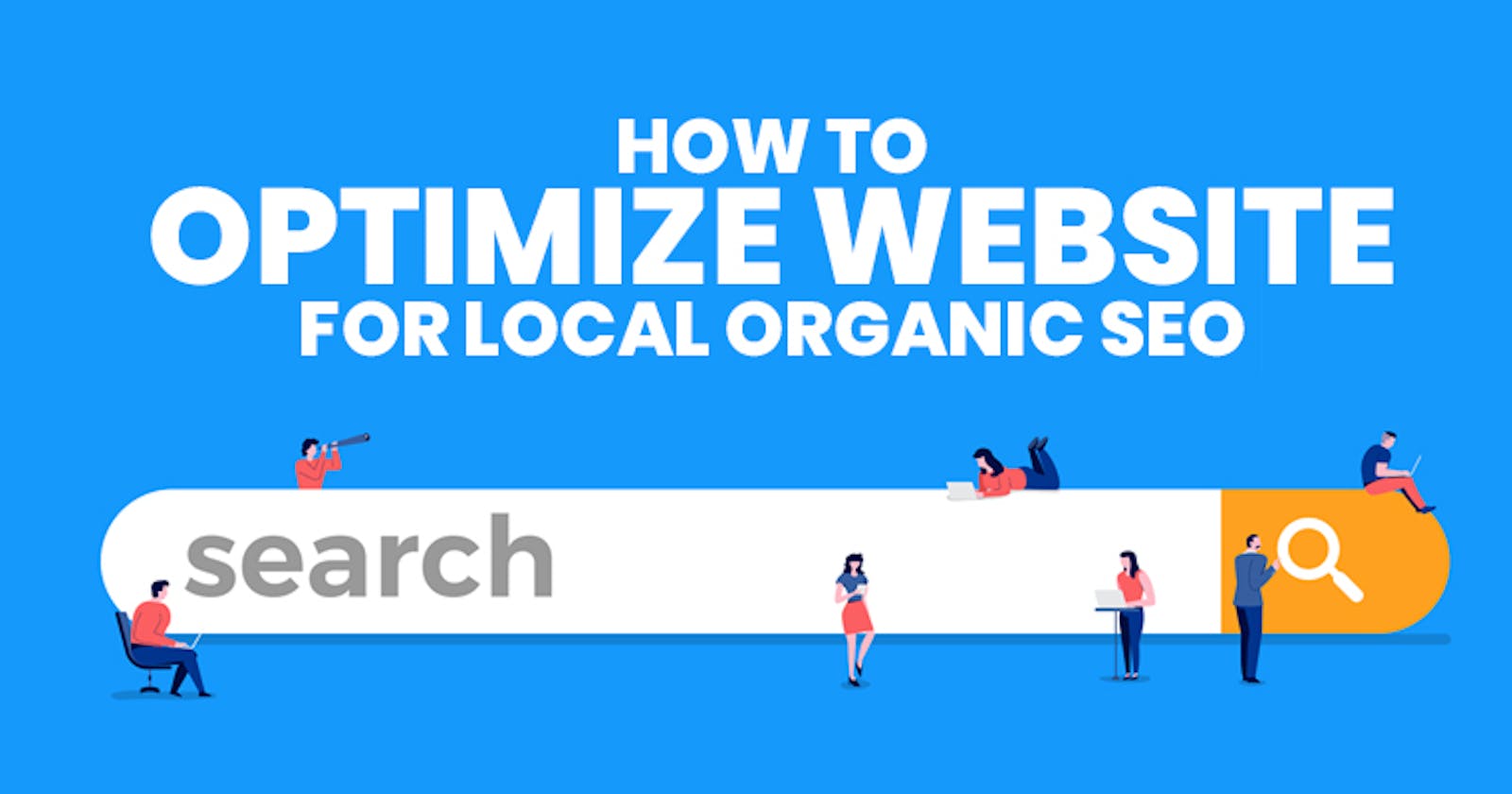Optimizing your website for local organic SEO (Search Engine Optimization) is crucial for businesses targeting a local audience. Here are some steps you can take to enhance your local SEO:
1.Keyword Research:
Identify relevant local keywords that potential customers might use to find your products or services. Use tools like Google Keyword Planner, Ubersuggest, or SEMrush to discover local search terms.
2.On-Page Optimization:
Include local keywords naturally in your page titles, meta descriptions, headers, and content. Optimize your website's URL structure to include location-specific terms. Use schema markup to provide search engines with information about your business, such as address, phone number, business hours, and reviews.
3.Google My Business (GMB) Optimization:
Claim and verify your Google My Business listing.Ensure your business name, address, and phone number (NAP) are consistent across all platforms.Add high-quality images of your business, products, and services.Encourage and respond to customer reviews on GMB.
4.Local Citations:
Ensure your business information is consistent across online directories, social media profiles, and review sites.List your business on popular local directories such as Yelp, Yellowpages, and local chamber of commerce websites.
5.Local Content Creation:
Create content that is locally relevant and valuable to your audience.Write blog posts, articles, or case studies about local events, news, or community activities.Use local landmarks, events, and news in your content.
6.Mobile Optimization:
Ensure your website is mobile-friendly, as many local searches happen on mobile devices.Optimize page loading speed for a better user experience.
7.Local Link Building:
Build local backlinks by partnering with other local businesses, sponsoring local events, or participating in community activities.Engage in local partnerships and collaborations.
Be active on social media platforms that are popular in your local area.Share local news, events, and promotions.Use location-based hashtags and geotags in your posts.
9.Online Reviews:
Encourage satisfied customers to leave positive reviews on platforms like Google, Yelp, and Facebook. Respond promptly and professionally to both positive and negative reviews.
Conclusion:
Remember that local SEO is an ongoing process, and staying up-to-date with changes in search engine algorithms and consumer behavior is essential for continued success. Regularly evaluate your efforts and make adjustments accordingly.
Contact us for our Local SEO consultation to increase your website ranking in search engine results pages today.
